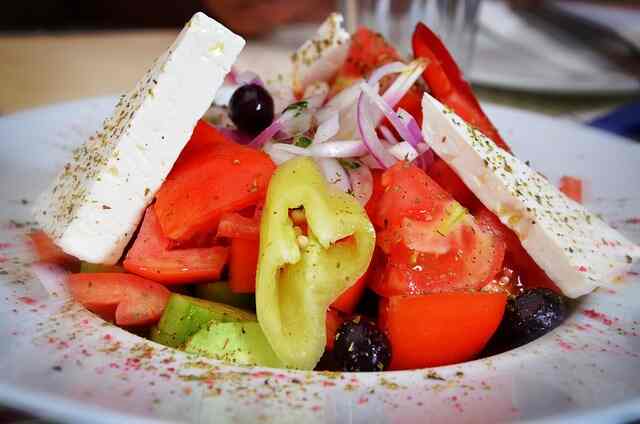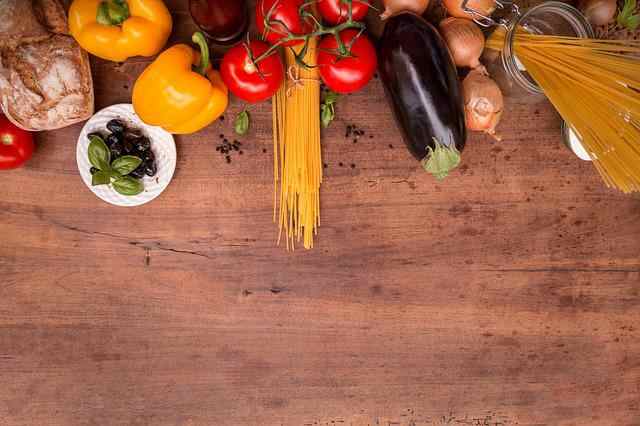Dietary staples include whole grains, vegetables, legumes, fruits, nuts, seeds, herbs, and spices that come from plants. The majority of the extra fat comes from olive oil. In moderation, chicken, dairy products, and fish are allowed. Sweets and red meat are only seldom consumed.
The Mediterranean diet is based on the traditional meals that people used to consume in France, Spain, Greece, and Italy all nations that border the Mediterranean Sea. These persons were recognised by researchers to be unusually healthy and to have a minimal risk of developing various chronic diseases. (Source)
How Can A Mediterranean Diet Help You Lose Weight?
One of the healthiest eating regimens available has a long-standing reputation as the Mediterranean diet. It’s also regarded as one of the most well-liked diets among dieters due to its adaptability, abundance of tasty foods, and wealth of health advantages. In actuality, the Mediterranean diet has been connected to increased weight loss, decreased inflammation, and a lower risk of chronic disease.

How Mediterranean Diet Is Helpful For Diabetes And Prediabetic
One of the healthiest diets is the Mediterranean diet. It includes fruits, vegetables, whole grains, legumes, seafood, nuts, seeds, and unsaturated fats. A Mediterranean-style diet may also successfully prevent and treat diabetes and its risk factors, according to a study. These include gaining weight, obesity, heart disease, and stroke.
Also Read: All About Vegan Diet: A Detailed Guide On Veganism For Beginners!!!
Other Health Benefits Of Mediterranean
Promotes heart health
For its potential to improve heart health, the Mediterranean diet has been extensively researched. Actually, studies suggest that a Mediterranean diet may even lessen your chance of developing heart disease and stroke.
Supports healthy blood sugar levels
Fruits, vegetables, nuts, seeds, whole grains, and heart-healthy fats are just a few of the nutrient-dense foods that the Mediterranean diet promotes. Thus, adhering to this dietary pattern may assist in stabilising blood sugar levels and preventing type 2 diabetes. (Source)
Protects brain function
The Mediterranean diet may be good for your brain and may even shield you against cognitive loss as you age, according to a number of studies. For instance, a study including 512 individuals discovered that better memory and a decrease in a number of Alzheimer’s disease risk indicators were linked to increased adherence to the Mediterranean diet.
Foods That You Can Eat In the Mediterranean?
- Vegetables: tomatoes, broccoli, kale, spinach, onions, cauliflower, carrots, Brussels sprouts, cucumbers, potatoes, sweet potatoes, turnips
- Fruits: apples, bananas, oranges, pears, strawberries, grapes, dates, figs, melons, and peaches.
- Eggs: chicken, and duck eggs
- Dairy: cheese, yogurt, milk.

Foods To Avoid In Mediterranean
- Added sugar: added sugar is found in many foods but is especially high in soda, candies, ice cream, table sugar, syrup, and baked goods.
- Refined grains: white bread, pasta, tortillas, chips, crackers.
- Trans fats: found in margarine, fried foods, and other processed foods
- Refined oils: soybean oil, canola oil, cottonseed oil, grapeseed oil.
A Sample Mediterranean Meal Plan For 1 Week
Monday
- Breakfast: Strawberries and chia seeds in Greek yoghurt.
- Lunch:a sandwich made with nutritious grains, hummus, and vegetables.
- Dinner: a fruit salad and tuna salad with leaves and olive oil.
Tuesday
- Breakfast: oatmeal with blueberries.
- Lunch: Olive oil, balsamic vinegar, mozzarella, and zucchini noodles in a caprese sauce.
- Dinner: a salad with grilled chicken, feta cheese, farro, tomatoes, olives, and cucumbers.
Wednesday
- Breakfast: an omelette with mushrooms, tomatoes, and onions
- Lunch: a whole grain sandwich with cheese and fresh vegetables
- Dinner: Mediterranean lasagna
Thursday
- Breakfast: yogurt with sliced fruit and nuts
- Lunch: a quinoa salad with chickpeas
- Dinner: broiled salmon with brown rice and vegetables
Friday
- Breakfast: eggs and sautéed vegetables with whole wheat toast
- Lunch: stuffed zucchini boats with pesto, turkey sausage, tomatoes, bell peppers, and cheese
- Dinner: grilled lamb with salad and baked potato
Saturday
- Breakfast: oatmeal with raisins, nuts, and apple slices
- Lunch: a whole grain sandwich with vegetables
- Dinner: Mediterranean pizza made with whole wheat pita bread and topped with cheese, vegetables, and olives
Sunday
- Breakfast: an omelette with veggies and olives
- Lunch: falafel bowl with feta, onions, tomatoes, hummus, and rice
- Dinner: grilled chicken with vegetables, sweet potato fries, and fresh fruit
Mediterranean Diet Tips And Tricks
Salt-free; flavored with fresh and dried herbs and spices. Protein and the beneficial omega fatty acids are found in fish and seafood. dairy products, eggs, and particularly red meat (always choose sustainable, organic and environmentally-friendly protein) Make eating a communal, conscious activity by eating slowly.
Side Effects Of the Mediterranean Diet
- Olive oil and nut fats can make you gain weight.
- Your iron levels could be lower.
- As a result of consuming fewer dairy products, you can lose calcium.
Risk Of Mediterranean Diet
- weight increase brought on by exceeding the recommended fat intake.
- Low amounts of iron due to insufficient meat consumption.
- Calcium loss as a result of reducing dairy consumption.
Conclusion
The Mediterranean diet can have long-term positive effects on health, they all agreed. The DASH diet (Dietary Approaches to Stop Hypertension) was ranked as the second-healthiest eating plan. The DASH diet is advised for managing hypertension or high blood pressure.





